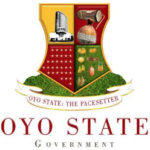The Governor of the Central Bank of Nigeria (CBN), Mr Olayemi Cardoso has disclosed that $1 billion monthly remittance from the diaspora is achievable.
He said this can be actualised having addressed concerns raised by International Money Transfer Operators (IMTOs) and with the assurances from Nigerians in the Diaspora.
Cardoso stated this at a joint press conference with the Minister of Finance and Coordinating Minister of the Economy, Mr Olawale Edun, at the end of the International Monetary Fund (IMF) and the World Bank Annual Meetings.
The CBN governor, who said the apex bank was working assiduously to get Nigeria out of the grey list, added that remittances, which were a little above $250 million as of April this year, increased to over $600 million as of September this year.
Edun also stated that the bold reforms of President Bola Ahmed Tinubu’s administration were yielding the desired results.
He said, “Nigeria has such a strong diaspora community here; in the earlier stages of the reforms, IMTOs were having issues transferring money back to Nigeria, and we felt it was important to engage them, and we did.
“As a result of that engagement, we identified particular problems, of which a lot of responsibility was shared. Things have since improved because as at the last meetings, which was, I think, April, monthly inflows were about $250 million, but as of September, it had risen to $600 million.
“With the recent announcement by Nigeria Interbank Settlement Systems (NIBBS) on Bank Verification Number (BVN), and other products that the banking industry is offering, and through engagement with the diaspora, we believe we will be able to move accordingly and again, rising from that engagement, we put our sights on increasing the inflows to $1 billion monthly and I’m confident that we will get there,” he said.
The CBN governor also spoke on efforts to remove Nigeria from the Grey List which is a list of countries with shortcomings in tackling illicit financial flows. This category of countries are being strictly monitored by the Financial Action Task Force (FATF) due to perceived weaknesses in their anti-money laundering (AML) and combating the financing of terrorism (CFT).
Cardoso said, “In the last one year, our focus has been on the exchange rate, enhancing financial systems provision, fostering financial inclusion, and enhancing transparency in our monetary policy decisions and communications.
“We embarked upon bold and necessary reforms to return to the path of monetary policy orthodoxy, as well as remove observed distortions in the foreign exchange market.
“Our efforts have yielded significant progress as volatility in the foreign exchange market has abated measurably and remittances have also increased significantly; we have achieved increased transparency and improved overall supply in the foreign exchange market, leading to reduced arbitrage and speculative activities and eliminated the front loading of foreign exchange demand.”
The Minister of Finance and Coordinating Minister of the Economy said globally there is a consensus on the need to stem inflation, saying, “For most of Europe, they are close to their target level of two per cent. Their economy is gradually recovering, and as a result, is gradually easing their monetary positions, which were very tight.”

 Join Daily Trust WhatsApp Community For Quick Access To News and Happenings Around You.
Join Daily Trust WhatsApp Community For Quick Access To News and Happenings Around You.


